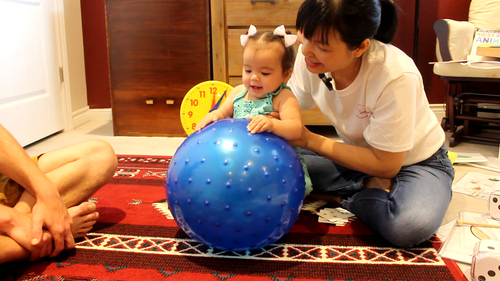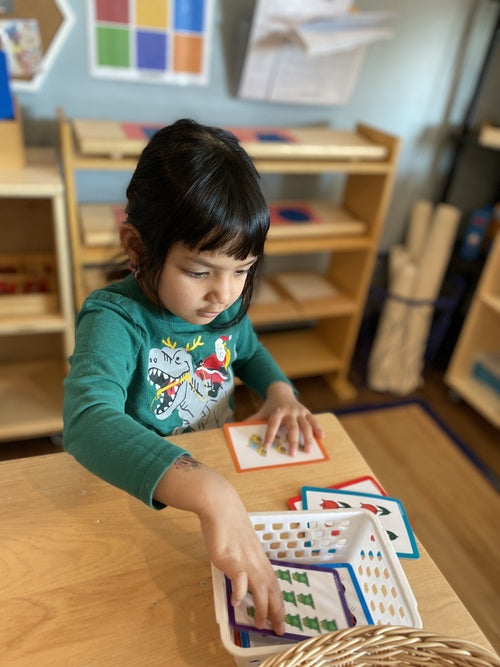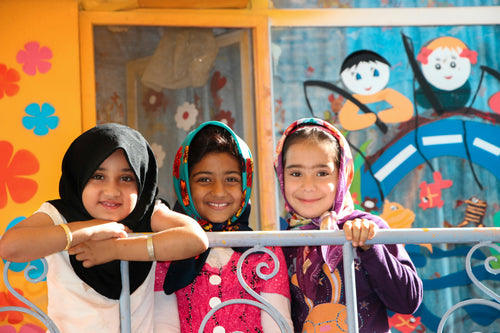Speech delay in children is a growing concern for many parents, and understanding its causes, signs, and solutions is key to helping children thrive. At Smartizen, we focus on providing holistic support through our innovative Whole-Brain Boosting Program, designed to address various developmental challenges, including speech delay. In this article, we will delve into the complexities of speech delay, explore its potential impact on a child’s development, and highlight how Smartizen’s specialized programs can offer solutions.
Understanding Speech Delay
Definition of Speech Delay
Speech delay occurs when a child’s speech and language development lags behind typical milestones for their age. It involves difficulties in the child’s ability to articulate words, form sentences, or use language to communicate effectively. While some children may be late bloomers in terms of speech, true speech delay refers to cases where developmental lags persist beyond what is considered normal for their age group.
Differentiating between a temporary delay and a more concerning speech disorder is important. Some children naturally develop language skills later than their peers without any long-term concerns. However, if a child is significantly behind in speech development for their age, it is essential to assess whether they might be facing speech delay rather than a normal variation in growth.

Causes of Speech Delay in Kids
1. Genetic Factors Genetics can play a significant role in a child’s speech development. A family history of speech or language disorders may increase the likelihood of speech delay. Conditions such as childhood apraxia of speech or specific language impairments can be inherited, affecting how a child processes language and controls their speech muscles. Identifying genetic factors early on is important for developing personalized intervention strategies.
2. Environmental Factors A child’s environment heavily influences their speech development. Children raised in homes with limited verbal interaction or where they are exposed to multiple languages at once may experience speech delay due to confusion or insufficient language modeling. Conversely, environments rich in conversation, reading, and verbal engagement can foster quicker speech development. Socioeconomic factors also play a role, as children from homes with fewer educational resources may encounter delays.
3. Medical Conditions Several medical conditions can contribute to speech delay in children. For instance, hearing impairments can prevent a child from learning to imitate sounds, an essential part of speech development. Additionally, neurological disorders like autism spectrum disorder or cerebral palsy can impact the brain's ability to process and produce speech. Other medical issues, such as chronic ear infections, may also impede language acquisition during critical periods.
Common Signs of Speech Delay in Kids
1. Early Signs Recognizing the early signs of speech delay is crucial for early intervention. Babies who are slow to babble or use gestures like pointing may be exhibiting early indicators of speech delay. A child who struggles to combine sounds or form basic words by the age of 18 months is also at risk for delayed speech development.
2. Developmental Milestones Comparing a child’s speech development with typical developmental milestones can help assess whether a delay is present. By 12 months, most children can say simple words like “mama” or “dada,” and by 24 months, they should be able to string two or more words together. If a child is significantly behind in reaching these milestones, it may be a sign of speech delay.
Learn more about toddler growth milestones here.
3. Red Flags Parents should be aware of persistent difficulties, such as a child’s inability to pronounce simple words or understand basic instructions. Other red flags include a child who appears disinterested in verbal communication or shows frustration when attempting to speak. These signs may indicate more than just a temporary delay and should prompt a professional evaluation.
Impact on Child Development
1. Emotional and Social Consequences Speech delay can have significant emotional and social consequences for children. Struggling to communicate effectively may lead to frustration, which can result in emotional outbursts or social withdrawal. Over time, these challenges may impact a child’s self-esteem, as they may feel different or inadequate compared to their peers. Left unaddressed, speech delay can also affect a child’s ability to form friendships and navigate social interactions.
2. Academic Implications Speech is the foundation of literacy and learning. Children who experience speech delay may have trouble with reading, writing, and comprehension, which can impact their academic performance. If these issues persist, they may lead to long-term challenges in school, making it harder for the child to succeed academically. Early intervention is essential to prevent speech delay from affecting a child’s educational future.

Smartizen's Whole-Brain Boosting Program and Speech Delay
At Smartizen, we believe in addressing speech delay through a holistic, brain-centered approach that nurtures the whole child. Our Whole-Brain Boosting Program is designed to support cognitive, emotional, and social development by engaging both hemispheres of the brain.
Overview of Smartizen's Approach to Addressing Speech Delay
Our program is grounded in the belief that every child can unlock their full potential with the right support. We aim to improve speech development by creating a nurturing and stimulating environment that combines personalized learning with whole-brain development techniques.
- Philosophy and Goals Smartizen’s philosophy revolves around the idea that children’s brains are highly adaptable and capable of incredible growth when given the right stimuli. We focus on enhancing neuroplasticity – the brain’s ability to reorganize itself by forming new neural connections – to help children overcome speech delays.
- Program Structure Our Whole-Brain Boosting Program incorporates a range of activities and exercises designed to engage both sides of the brain. From language-based flashcards to interactive games and sensory experiences, the program is structured to promote active learning and reinforce speech and language skills.
- Role of Parents and Caregivers We believe that parents and caregivers play a crucial role in a child’s speech development. Our program includes guidance for parents on how to support their child’s language skills at home, offering tools and strategies that can be easily integrated into daily routines.
Techniques and Methodologies Used in the Program
1. Neuroplasticity-Based Activities By using exercises that challenge the brain’s plasticity, we help children improve their ability to process and produce speech. These activities involve repetition and gradual progression, allowing children to build confidence in their speech abilities over time.
2. Interactive and Engaging Exercises Our program uses games, storytelling, and role-playing to make speech development fun and interactive. Engaging children in playful activities encourages them to practice language in a low-pressure environment, fostering confidence and reducing frustration.
3. Multisensory Learning Approaches We integrate visual, auditory, and kinesthetic learning strategies to help children with speech delays. Flashcards, for example, are used to reinforce vocabulary, while music and movement activities engage the auditory and physical aspects of learning.
4. Cognitive and Behavioral Strategies We address speech delay by teaching children strategies to overcome communication barriers. By combining cognitive techniques with positive reinforcement, we encourage children to develop problem-solving skills that help them navigate speech challenges.
Sign up for free trial class here
Early intervention is key to helping children with speech delay overcome obstacles and reach their full potential. At Smartizen, we are committed to providing a nurturing environment that supports every child’s unique developmental journey. Our Whole-Brain Boosting Program is designed to engage children in meaningful, fun activities that enhance speech development and promote overall cognitive growth.
If you’re concerned about your child’s speech development, consider enrolling in Smartizen’s Whole-Brain Boosting Program. Contact us today to learn more about our programs or schedule a consultation to see how we can help your child thrive.








